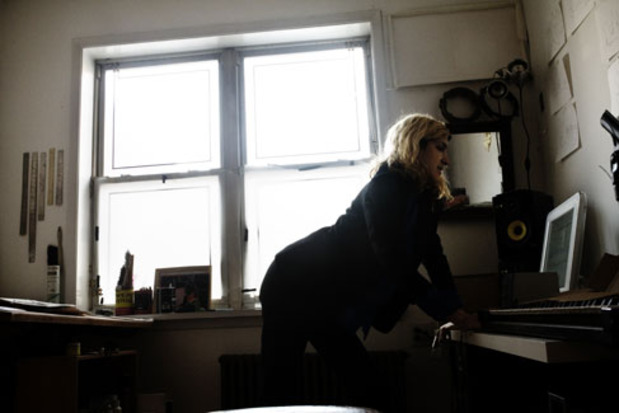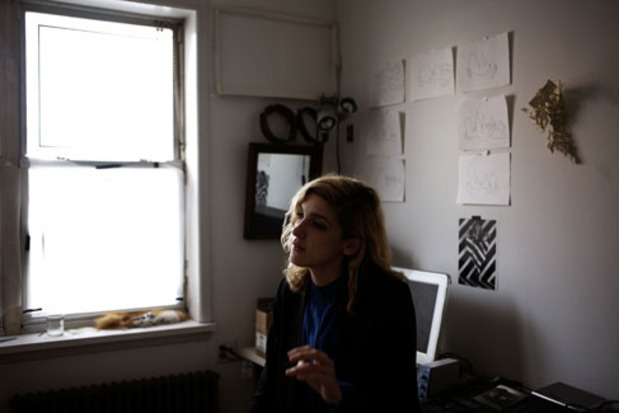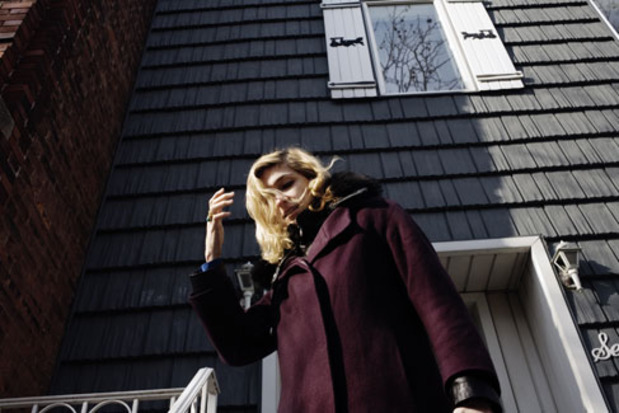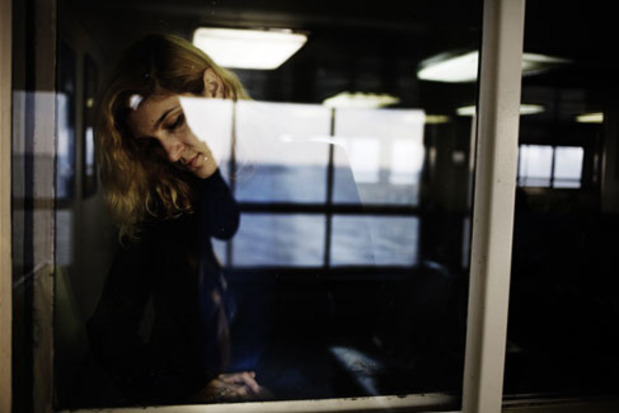Sahra Motalebi wears a lot of black and wiggles her toes before songs. Last night at the Clemente Soto Velez Theater in New York's Lower East Side she performed shrouded in sheen and fretless bass. She sings like a calm banshee, little whirls and twirls, finger details and summoning. She has a sense of slow drama uninjected into much modern music, stern and unshakeably so, unfancy and deep. It's warming to see that. Her songs are bizarre, hand drum and violin voodoo chants. Someone told us recently that he was happy art was moving in a direct that favored a little bit of unfinished fringe. That's chill, but a little polished serious is nice, too. Check Sahra Motalebi's Gen F after the jump, along with some of Gabriele Stabile's photo outtakes.
SO IT GOES
Sahra Motalebi, free bird.
Story by Matthew Schnipper
Photography by Gabriele Stabile
There is something dervish-esque about Sahra Motalebi’s music. It’s as if she is a young muezzin singing alone in her apartment draped with paisley fabric and lit by tiny candles. I found out about her because I liked the cover of her CD when I saw it at a record store. There has been little press about her, and most of it has come through art-focused NYC magazines. She releases her music herself in slim cased CDs (a new six-song album is out in May), gives them to friends and doesn’t promote them. When she mentions Pitchfork, it’s a surprise she even knows it exists, much less understands its power in relation to being an independent artist. Because, as far as I can tell, she doesn’t have much of a plan except to keep singing.
“One thousand-bazillion artists in the last however many years, they had no patrons,” she says. “How does anybody make anybody hear anything? Can you make anybody? I don’t know what people do. They get managers, they get label deals, but how do they do that? I don’t know anything about that.” And, so, sitting across the table from me at a fancy hotel bar is a possibly too content musician for 2008. It would be better if Sahra Motalebi was mean. Or if she was really gaunt or brutally scarred from a fire or blind or fiercely shy or smelled strangely or did anything even slightly manic. As it is, she’s deeply kind and steadfast and warm and while there is most certainly nothing wrong with that, it doesn’t help her music sell.
In song she is murky, creepily inviting and frightening, both fearmonger and soothsayer. She sounds like she has a second career as an oracle. Let’s begin by letting go she sings in “Pearling,” and then announces As it goes, so it does over and over and over. Her voice is syrupy and faraway. She uses hand drums the same way Jimi Hendrix wore scarves—mystical and loose. She’s got deep surety and strength and an air of great professionalism. She sounds powerful enough that she probably shouldn’t be as nervous as she is to talk with me. But to her, she is talking to The FADER, not a tiny Jew wearing Keds and his grandfather’s scarf. But as the formality dissolves and she is over my barrage of questions about how she is going to try to get people to hear her music, she says simply, “You found it,” and after that I don’t have much else to say.




